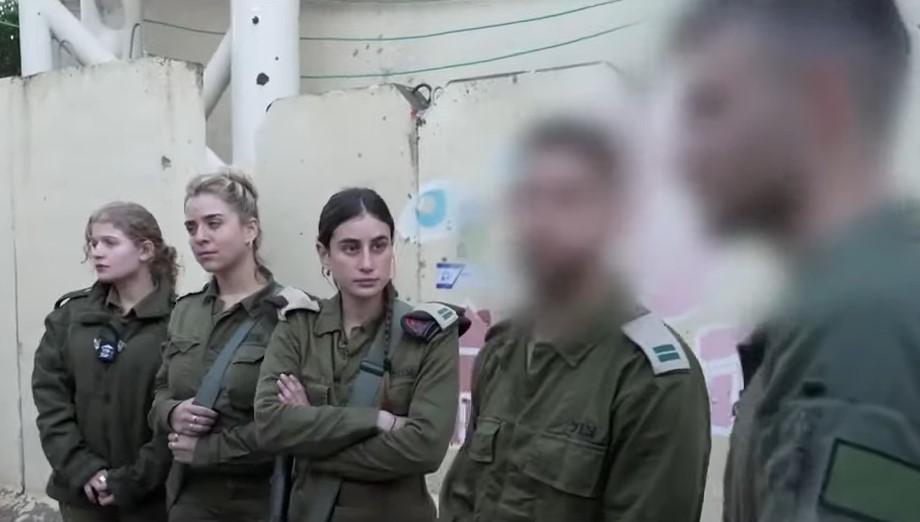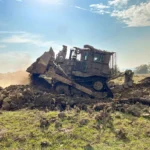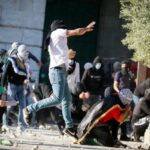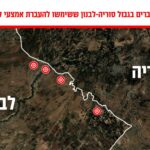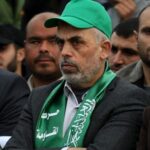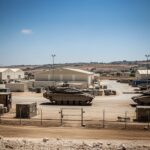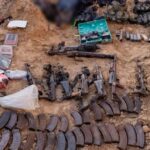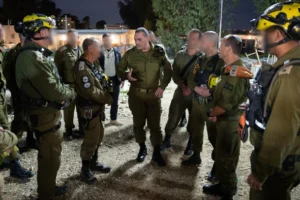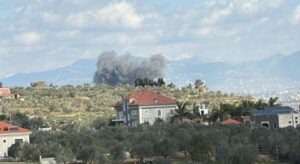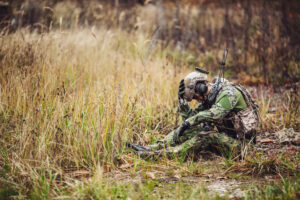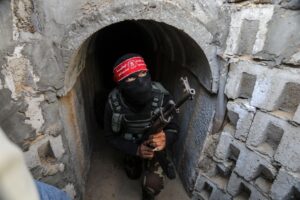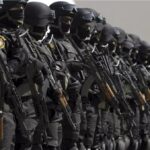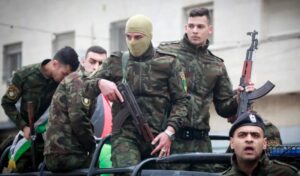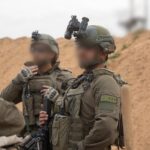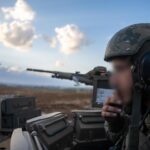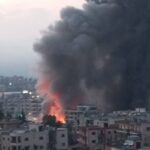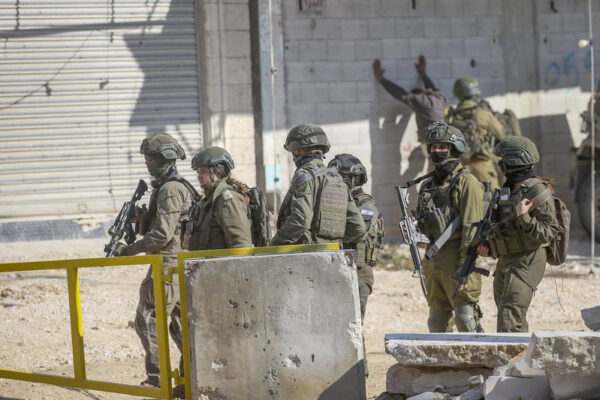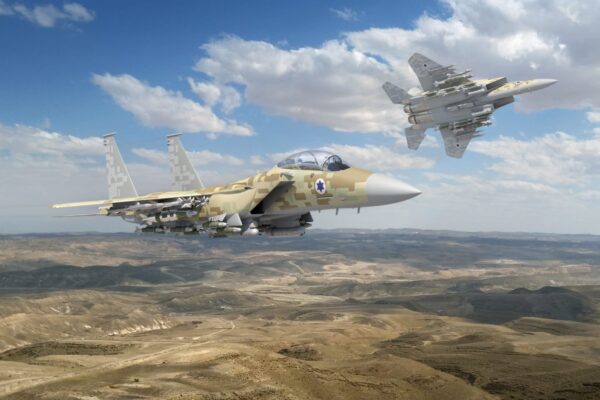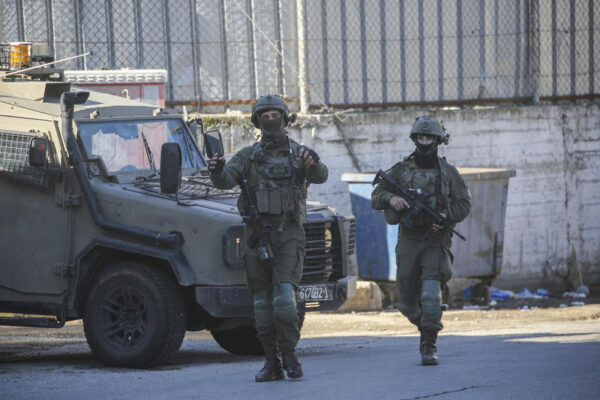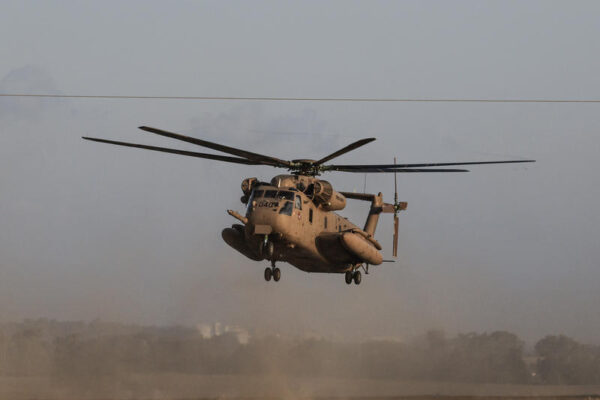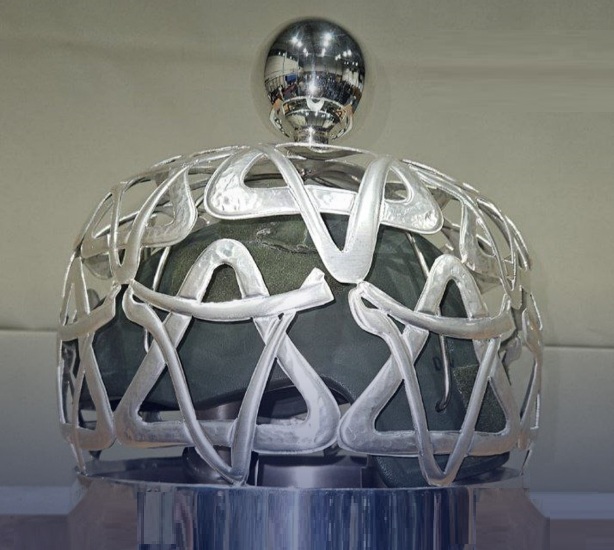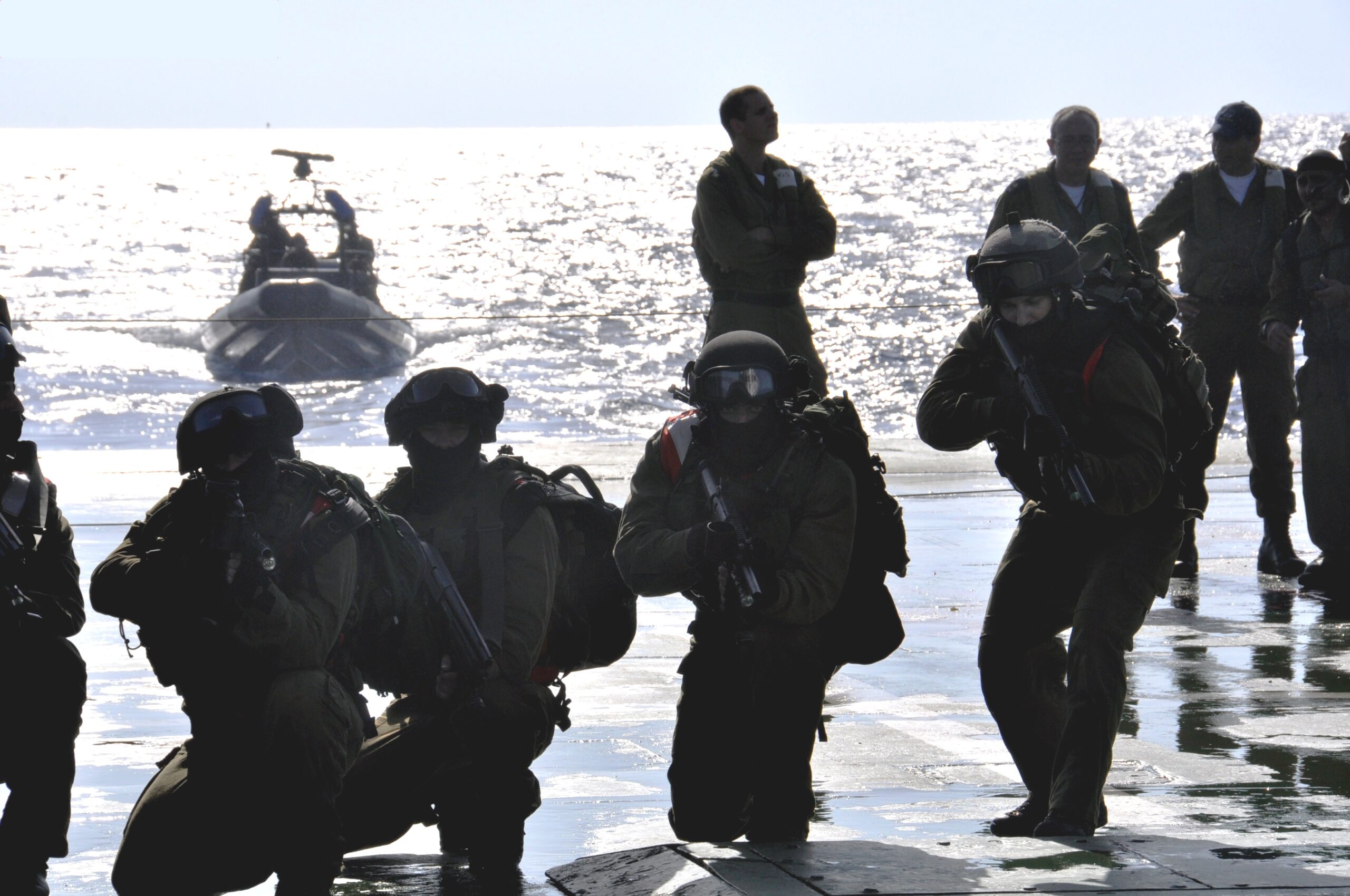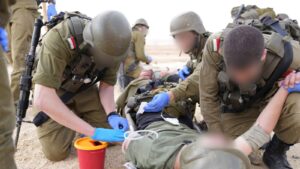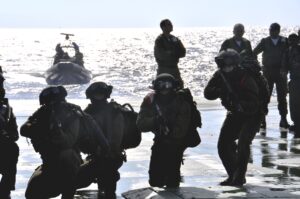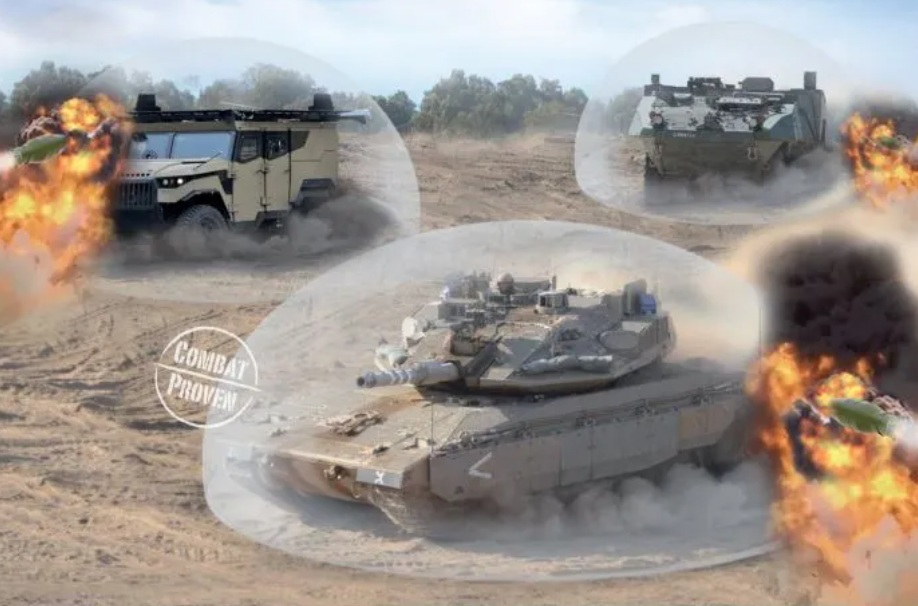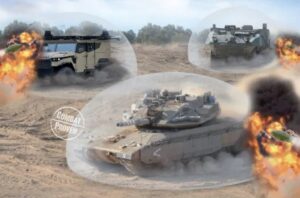The army’s arrogance, unpreparedness and neglect to arm soldiers were some of the failures noted in a BBC report.
By The IDF Club
There were multiple failures at the Nahal Oz army base attacked by Hamas forces on October 7, many of which could have been forestalled had the IDF acted differently, the BBC reported Friday.
Most of the soldiers on the base were unarmed, the report said, citing information slain soldiers’ families had received from the IDF.
It had been revealed early on in the war that the mostly female soldiers who manned the screens linked to border cameras had warned their superiors multiple times for months about openly-practiced Hamas military exercises of take-overs of Israeli communities, which were ignored.
But, the report said, it was not only observers at the Nahal Oz base on the Gazan border who knew that Hamas was planning some kind of attack.
Other soldiers were also suspicious and fearful, especially when all activity stopped on the enemy side a few days prior.
“There was nothing and that was frightening us,” one infantry soldier told the British broadcaster. “Everybody felt that something was strange. It didn’t make sense.”
But at 6:20, an unending rocket barrage began, and at 6:30 the observers began reporting multiple breaches of the border fence by Hamas fighters.
The early warning system steadily collapsed as one surveillance camera after another was destroyed by enemy gunfire.
In addition, three observation balloons out of the five that were always supposed to be operational to see further into Gaza all along the Strip, were not working, including the one at Nahal Oz.
“No-one was stressed” about this, the father of a soldier who worked with the balloon, said.
“They were told it would be fixed on Sunday. There was an atmosphere like: ‘Hamas is deterred, even if something happens it’s a terrorist infiltration or at most a terrorist squad.’”
As the IDF has documented since, some 6,000 terrorists entered Israel that Sabbath, breaking through the border fence in 119 places in all.
At Nahal Oz, dozens of Hamas and Islamic Jihad fighters penetrated the base, joined in the following hours by hundreds more.
The few armed soldiers fought back bravely, while those not armed crowded into locked areas, such as the observers’ war room.
When the terrorists managed to shut down the electricity, the doors automatically unlocked, and the inside protective force was overwhelmed.
Some 60 soldiers were killed in Nahal Oz, several of the dead as well as live observers were taken hostage, and the post was partially burned to the ground.
In responding to all these incidents, Gen. (ret.) Israel Ziv, a former head of the Gaza Division and IDF Operations Division, told the BBC that the army did not understand the situation due to “a lot of arrogance,” in which the predominant thought was that “Hamas wouldn’t attack, wouldn’t dare, and that even if so, they are not capable.”
He praised the observers, saying, that they “were amazing – the mistake was the system, the commanders, not them,” and criticized the decision to have so many soldiers go about unarmed, saying, “It doesn’t make sense… The soldier is about the weapon.”
If they were depending on door locks instead, he added later in the interview, the IDF system had “already failed.”
Another IDF failure, he said, was not training for a possible base infiltration.
“That was part of the whole mess because once the enemy surprised them and went into the base they were not ready. The whole thing collapsed,” he noted.
Soldiers described to the BBC how they did not understand what was going on for the longest time, an incomprehension that was reflected in the upper echelons as well.
This left the Nahal Oz troops, as well as so many others in communities along the border, fighting on their own for many hours.
Ziv described October 7 in general as “a perfect storm,” and that “We went to sleep on the 6th thinking there’s a cat over there and we woke up on the 7th and there’s a tiger.”


